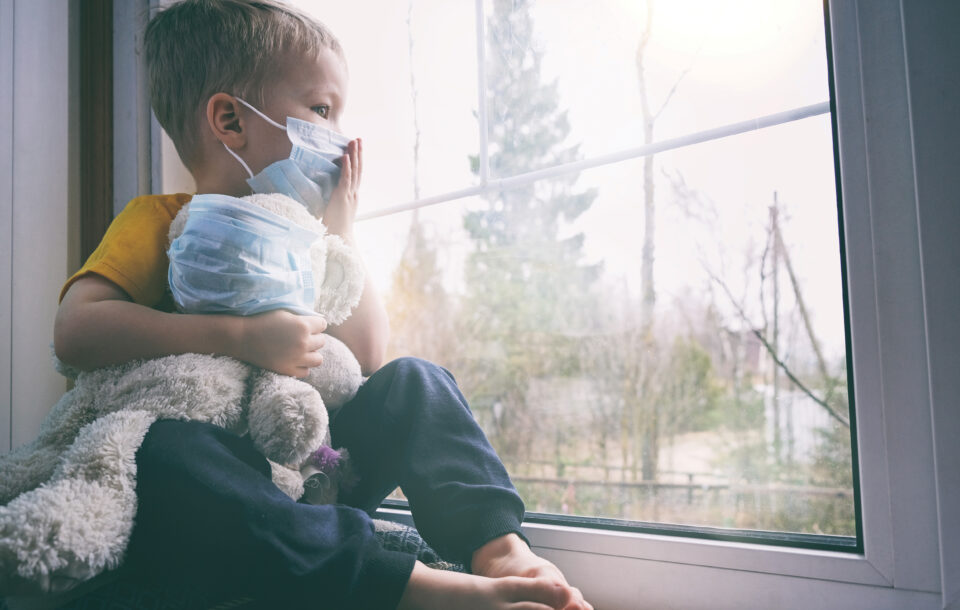
Long-Term Mental Health Effects of COVID on Children
We are facing a silent epidemic of grief in children, or what I refer to here as “psychological long COVID.” Across the nation, over 175,000 children experienced the death of at least one parent or caregiver to COVID, including more than 3,000 youth in Louisiana.
Following the death of a loved one, most children are resilient and will naturally experience “good grief,” which involves finding healthy ways of connecting to the person who died and making meaning of their death in age-appropriate ways. However, many children who have experienced deaths due to COVID, especially those exposed to prior traumas or losses, are more likely to develop psychological long COVID, involving a host of grief-related psychological or behavioral problems. In fact, research indicates that the sudden death of a loved one is the strongest predictor of poor school outcomes, above and beyond any other form of trauma, including physical abuse or sexual abuse.
Bereaved youth are also more likely to experience posttraumatic stress, depression, anxiety, and risk-taking behaviors. Although we do not yet have enough data to know how long psychological long COVID may last, studies show that traumatic losses in childhood can lead to a wide range of problems in adulthood, including relationship difficulties, substance abuse, prolonged grief disorder, depression, and suicide risk. This speaks to the need to identify “at-risk” bereaved youth as quickly as possible and provide early, evidence-based interventions.
Children typically grapple with three primary challenges after a loved one dies. First, they may miss the person and long to have them back. Second, they may feel lost without the person or uncertain of how they will get through life without them. Third, they may be very preoccupied with the way the person died. Fortunately, there are a number of things that adults can do to help. They can help children find healthy ways to feel connected to the person who died by allowing children to keep tangible items that the person once owned or engaging in activities that the person enjoyed. Adults can talk openly about the person–saying their name frequently and sharing fond memories. They can help identify positive traits that the children have in common with the person and discuss how to carry on the person’s legacy by harnessing those traits and behaviors. Children’s concerns about the circumstances of the death often stem from unanswered questions. Did they suffer? Were they afraid? Adults can help by allowing children to ask any questions they may have and providing simple, straightforward answers.
While most bereaved children will benefit from adult support alone, certain “red flags” may indicate the need for assessment and possible therapy. These include behavior changes that cause significant impairment in daily functioning.
In younger children, this may involve difficulties eating or sleeping or separation anxiety, such as refusing to leave a caregiver’s side. For older children or adolescents, this may involve constant tearfulness, extreme social withdrawal, or excessive risk-taking behaviors.
Other red flags include signs of posttraumatic stress such as nightmares, avoiding reminders of the person who died, hypervigilance, or appearing numb. Finally, any expression of a wish to die would require immediate attention from a trained clinician.
Although discussions of long COVID have focused almost exclusively on the physical health impact of the virus, it is time that we pay attention to the equally detrimental psychological long COVID that bereaved children across the country are experiencing. Collectively, we have the ability, and societal responsibility, to identify and support our nation’s grieving children, and in doing so, ensure the long-term well-being of our most vulnerable youth.
Julie Kaplow, Ph.D., ABPP, Executive Director of The Trauma and Grief Center at The Hackett Center for Mental Health, Houston and the Children’s Hospital New Orleans Trauma and Grief Center

